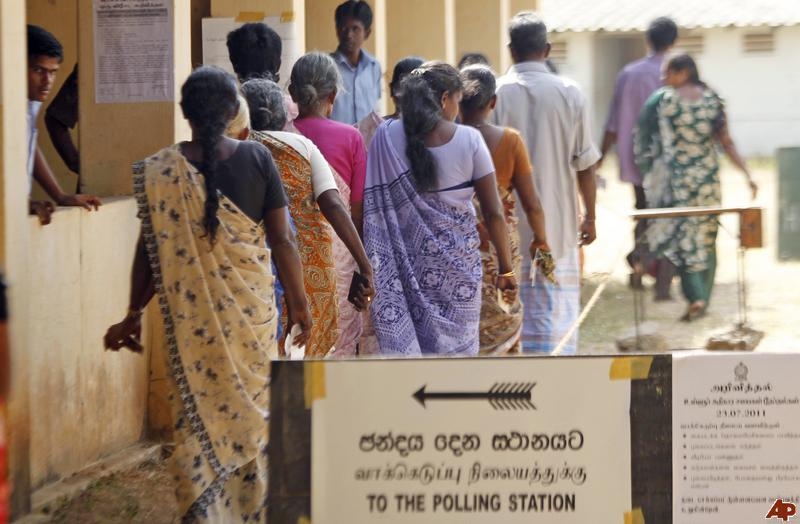Sri Lanka Treasury Secretary’s hands tied over election spending?

Sri Lanka’s Treasury Secretary Mahinda Siriwardene’s hands may tied under the island’s spending laws and cabinet directions, because tax revenues, though improving, are below target, analysts who have knowledge of the budgeting process said.
Sri Lanka’s local government body elections have stalled after the Government Printer ran out of money print postal votes.
Sri Lanka’s Elections Commission has said process is suspended for the moment.
Essential spending
Treasury officials who met the election commission on Friday has reportedly said only essential expenses are allowed under directions issued and election spending is not part of the list.
Elections monitors and other observes are have called for polls to be held. Opposition groups have threatened to take legal action against officials.
On February 06, the cabinet of ministers approved a decision by President Ranil Wickremesinghe as the Minister of Finance “to instruct the Secretary to the Treasury to take necessary action to release imprest only for the most essential recurrent expenditure to be incurred to maintain public services until the condition returns to normalcy.”
President Wickremesinghe has hiked taxes, including socialist style progressive taxes, undermining equal protection of the law usually accorded to citizens, which are drawing protests to keep the government running in an economic crisis.
Sri Lanka’s rupee collapsed from 200 to 360 to the US dollar and the country defaulted after the central bank printed money for two years and ran out of its reserves, triggering the worst currency crisis in its history.
In January state revenues went up compared to last year but remains below the target averaging about 200 billion rupees a month (2.3 trillion a year).
The allocation for Election Commission for 2023 had already been made by Treasury officials when they drew up the Appropriation bill for parliamentary approval.
The Finance Minister also signs a warrant after the budget is passed, giving authority for officials to spend the allocations.
Withdrawing Allocations
However, in addition to setting priorities, such moneys can also be withdrawn by the Finance Minister.
According to the Appropriations Law:
“Where the Minister is satisfied-
(a) that receipts from taxes and other sources will be less than the amounts anticipated to finance authorized expenditure; or
(b) that amounts originally appropriated for a particular purpose or purposes are no longer required,
he may with the approval of the Government, withdraw in whole or in part any amounts previously released for expenditure under the authority of a warrant issued by him, from the Consolidated Fund or from any other fund or moneys, of or at the disposal of the Government, to meet any authorized expenditure and the details of all such withdrawals shall be incorporated in the Final Budget Position Report which is required to be tabled in Parliament under section 13 of the Fiscal Management (Responsibility) Act, No. 3 of 2003.
Treasury officials have to comply with the law at all times, sources said.
Unhappy Electorate
When intermediate regime central bank (now called flexible exchange rate or flexible inflation targeting) triggers currency crisis by suppressing interest rates and the country goes to the IMF, governments usually change in many countries as the effects of the currency collapse hit the public.
Sri Lanka is now going through a stabilization process where demand falls due to the currency collapse and real incomes of people are destroyed and interest rates soar amid inflation though the slide in the flexible exchange rate has been arrested.
The incumbent government usually face public anger as well as pressure from businesses after a currency crisis. This time sovereign default and prospects of default has further complicated matters.
The local polls only apply to local government bodies where representatives for councils that govern towns and rural areas but the loss of the bodies to the opposition will undermine the legitimacy of the administration, according to political analysts.
Politicians in countries with monetary instability promises light at the end of a ‘pain tunnel’, but the same crisis happens again a few years later. Sri Lanka is going to the IMF for the 17th time.
President Wickremesinghe however was brought in by a parliamentary vote, after the currency crisis was triggered by interest rates suppression through flexible policy, under a previous leadership. (
